Japan’s Emperor Akihito abdicates throne as era ends and a nation pays tribute
- Akihito’s reign runs until midnight when his son Crown Prince Naruhito becomes emperor and his era begins
- Naruhito will assume the title of ‘tenno’ or ‘heavenly sovereign’ as the Heisei Era gives way to the Reiwa Era
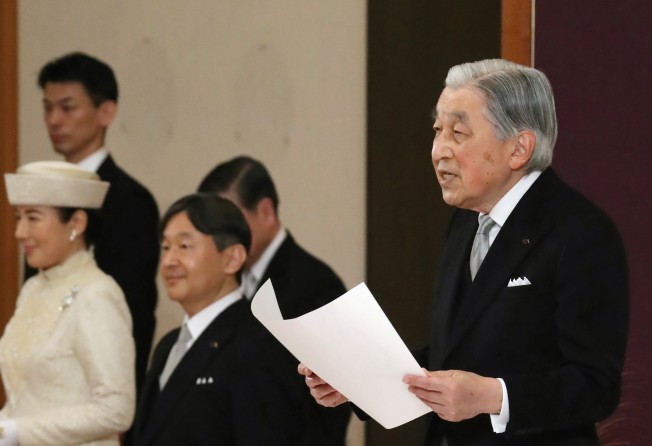
Japan’s Emperor Akihito formally stepped down on Tuesday, marking the first abdication in the world’s oldest monarchy for more than two centuries. In the “Room of Pine” in the Imperial Palace in Tokyo, the popular 85-year-old performed the abdication ritual in the presence of the imperial regalia – an ancient sword and sacred jewel that are considered to legitimise an emperor.
Dressed in a Western-style morning coat, he stood on a small stage before an invited audience and members of the royal family and offered his “deepest heartfelt gratitude to the people of Japan.” He said he would “pray for the peace and happiness of all the people in Japan and around the world.”
After more than 30 years on the throne, Akihito’s reign will formally end at midnight local time, paving the way for his son, Crown Prince Naruhito to assume the title of tenno or “heavenly sovereign” as the Heisei Era gives way to the Reiwa Era.
The last abdication of a Japanese emperor took place 202 years ago and the Imperial Household Agency has been poring over the documents that spell out the rites and rituals that need to be completed since the emperor first announced he would be stepping down in favour of his son in December 2017.
Earlier in the day, Akihito entered the imperial family’s Shinto shrine within the ground of the palace to announce his retirement to the gods. He wore a russet-coloured ceremonial court gown, identical to that worn by the imperial family for formal occasions between the eighth and 12th centuries.
Soon after 11am, he met Prime Minister Shinzo Abe and representatives of the public.
On Wednesday, the 59-year-old Naruhito will inherit the imperial regalia in a 10-minute ceremony that is off-limits to female royals, even his wife Masako. He will shortly afterwards make his first address to the nation as its 126th emperor. A more public enthronement ceremony will take place on October 22, during which Naruhito will parade through the streets of the capital and be congratulated by other world leaders and royalty.
Across the country, Japanese people have marked the abdication of the emperor and the dawning of the new era in a variety of ways.
“I think the emperor is loved by the people. His image is one of encouraging the people, such as after disasters, and being close to the people,” said Morio Miyamoto, 48, as he waited near a train station in western Tokyo. “I hope the next emperor will, like the Heisei emperor, be close to the people in the same way.”
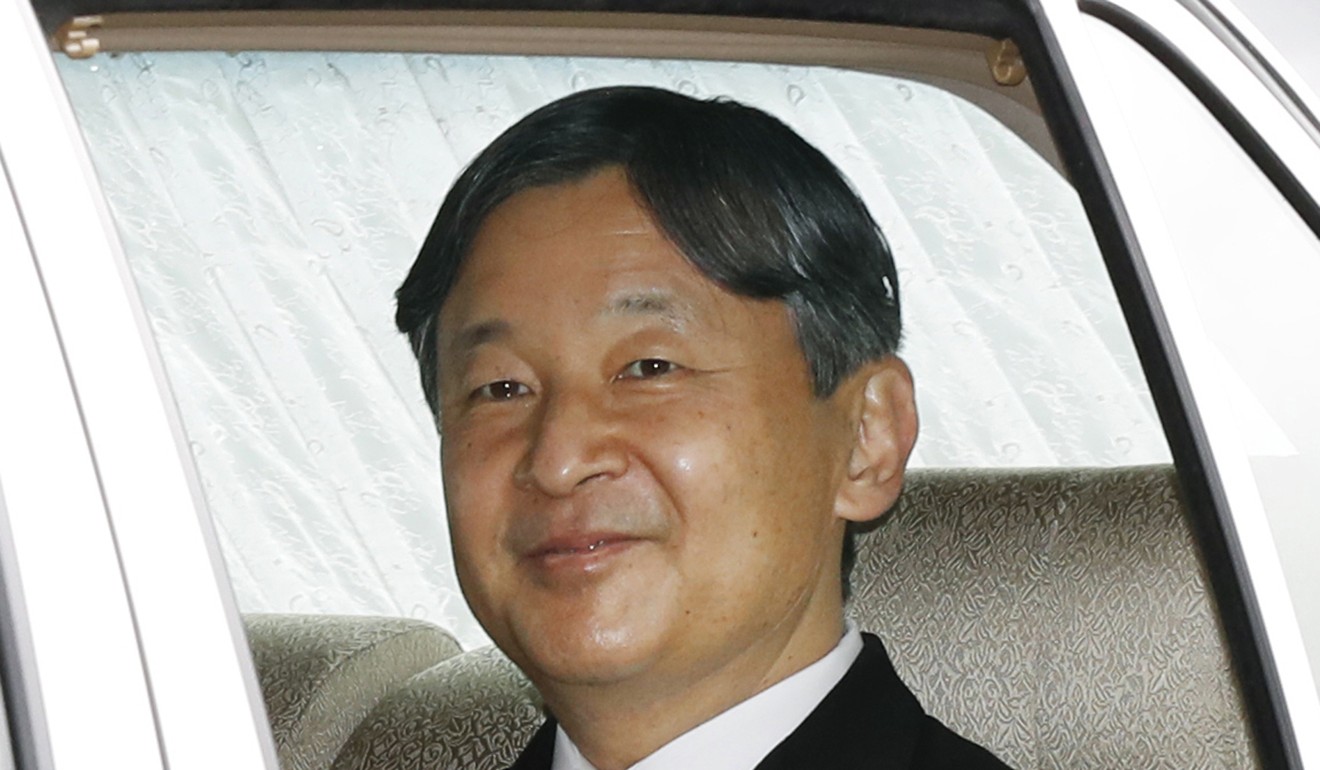
Akihito grew up during the second world war and was 11 when his father Hirohito announced the end of the war on radio. Akihito embraced his role as peacemaker and often represented his father on reconciliatory missions as young crown prince, decades before he became the emperor himself.
He was the first emperor in Japan’s modern history whose era did not have a war. Though he has avoided outright apologies, he has stepped up his expressions of regret in carefully scripted statements on the war.
Akihito visited China in 1992 and offered what was considered the strongest expression of regret over the war. He has also visited the Philippines and other Pacific islands conquered by Japan that were devastated in fierce fighting as the US-led allies took them back.
On Monday, Chinese foreign ministry spokesman Geng Shuang noted Akihito’s “positive contributions to promoting the development of Sino-Japanese relations”.
“At present, Sino-Japanese relations are returning to the right track and showing positive development momentum,” Geng said. “We hope that the Japanese side, along with China, will cherish and maintain the positive momentum of the current bilateral relations … and promote the continuation of healthy and stable Sino-Japanese relations.”
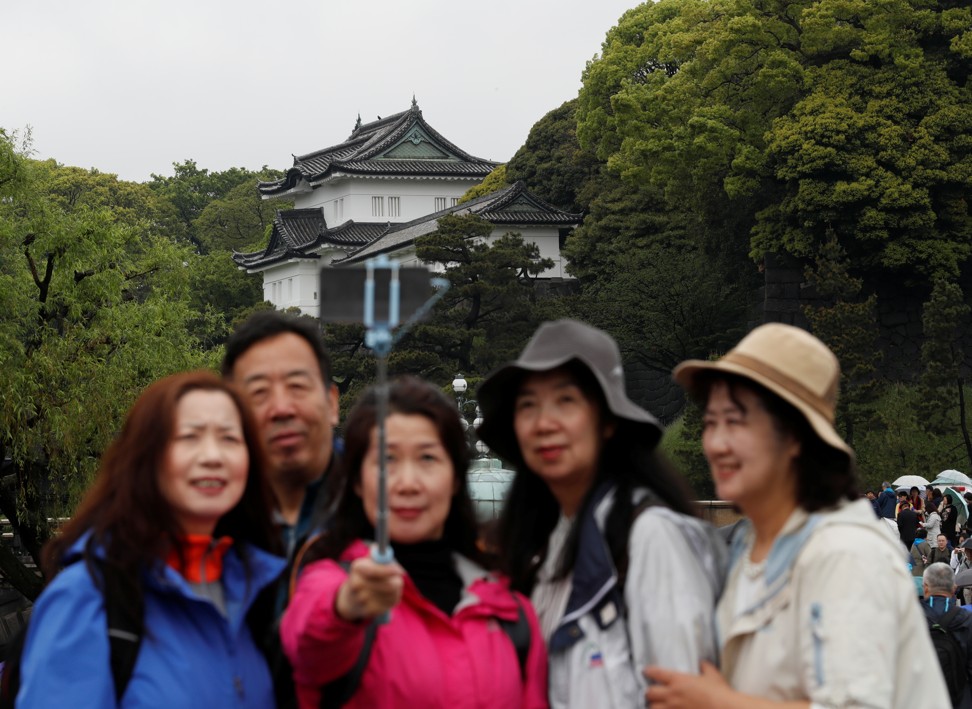
US President Donald Trump also offered his “heartfelt appreciation” to Akihito and Michiko on Monday.
“As the Heisei era draws to a close and a new generation prepares to ascend the throne, I want to recognise the tremendous importance that the United States attaches to its close relationship with Japan,” Trump said.
He noted that the outgoing emperor, to be succeeded by Crown Prince Naruhito on Wednesday, has welcomed five US presidents to Japan, including Trump in November 2017, during his reign “from the end of the cold war to the present day”.
“Our bilateral relationship was critical to navigating the global challenges of those times,” Trump said.
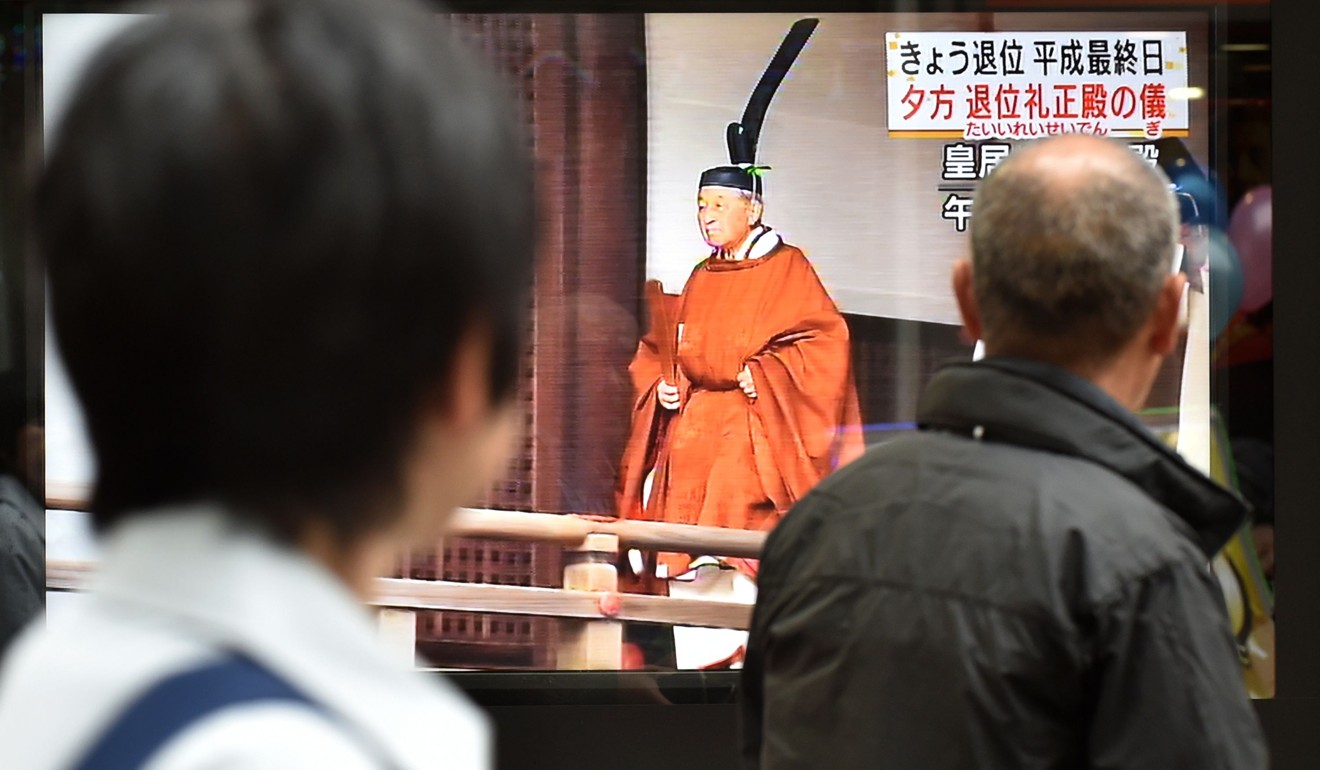
Farmers in Niigata Prefecture staged a series of traditional bullfights on Sunday to commemorate the abdication, while trains in Fukuoka Prefecture have been decorated with commemorative panels expressing the company’s gratitude to the emperor. Thousands of people also gathered at the imperial palace, where security was increased.
“I will be watching all the events at the palace on television today and tomorrow,” said Tomoko Hosomura, a 66-year-old housewife from Saitama Prefecture, north of Tokyo. “I’m not really a huge royal fan, but there has not been an abdication in more than 200 years so this will probably be the only chance that I get to see something like this.
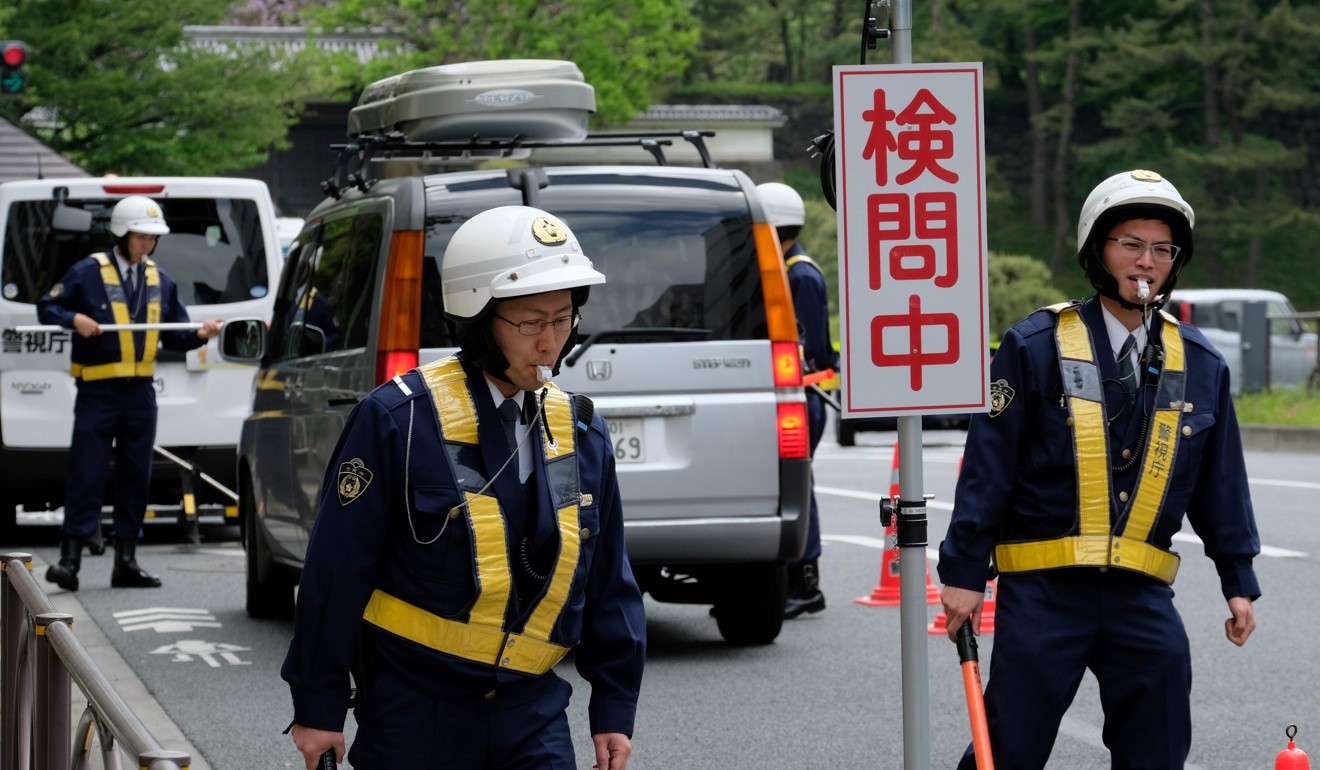
Hosomura was confident that the new emperor will follow in the wise and caring footsteps of his father.
“I am sure he will be a good emperor,” she said. “I’ve seen him on television over the years and he has clearly been well prepared for the role. He comes across as a man of good character – honest and reliable.
“And he cares for his wife and daughter, and I think that marks him out as a good emperor who cares for all his people.”
Akemi Yamauchi and her husband, Kaname, visited from Kyoto, Japan’s ancient capital.
“We came because today is the last day of [the emperor’s era of] Heisei, and we feel nostalgic,” Akemi said.
“We like the current emperor. He has worked hard for the people, he is very thoughtful, and kind to everyone,” her husband added.
Additional reporting by Associated Press, Agence France-Presse and Reuters